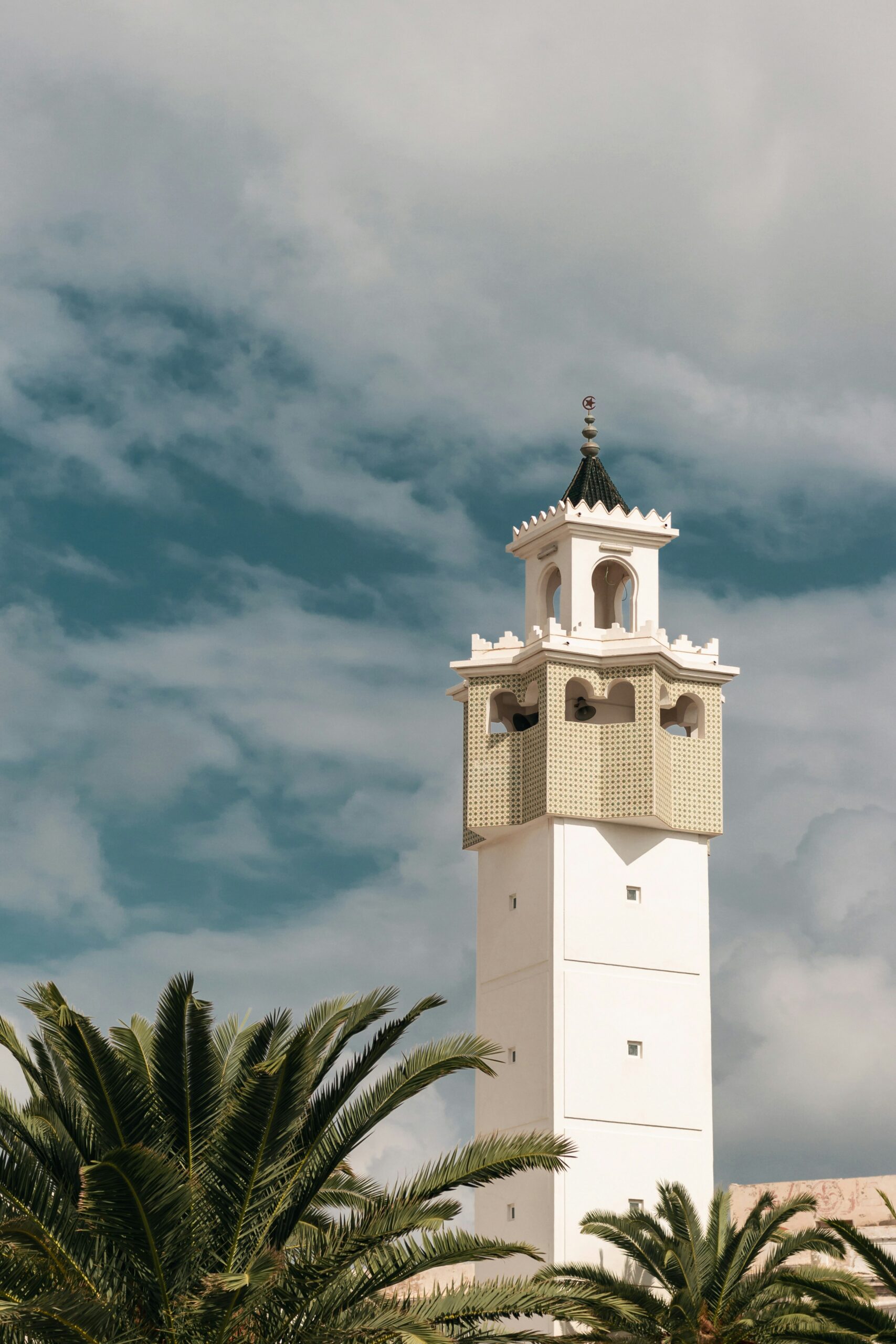History
Tunisia’s historical significance stems from its pivotal role as the heart of the Carthaginian Empire, a
powerful civilization founded by Phoenician settlers around the 9th century BCE. Carthage, led by the
legendary general Hannibal, became a major Mediterranean power and engaged in epic conflicts with Rome during the Punic Wars. The ruins of Carthage, including the Byrsa Hill archaeological site, provide glimpses into this ancient civilization’s grandeur and strategic importance
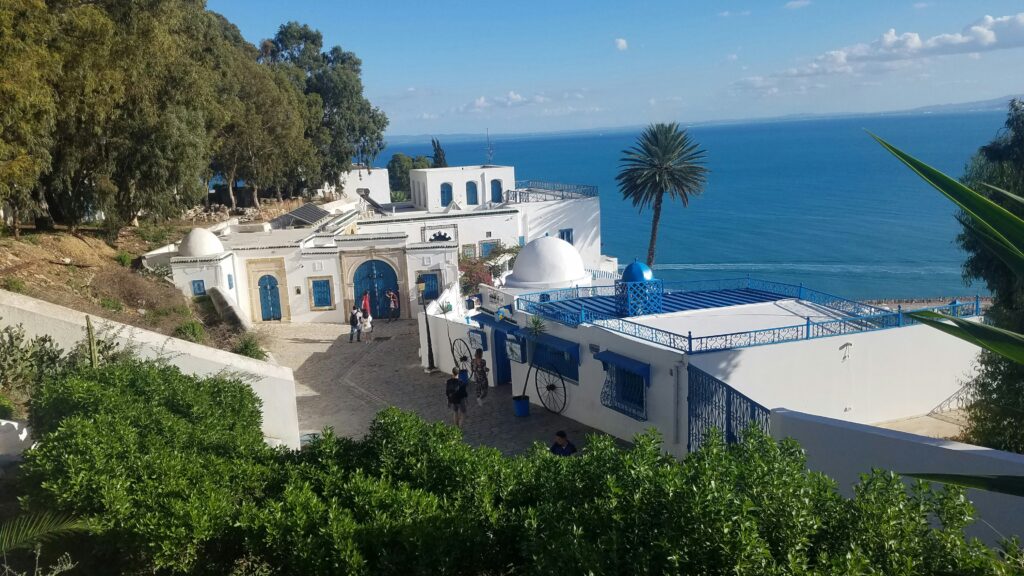
Following the fall of Carthage in 146 BCE, Tunisia became part of the Roman Empire, ushering in an era
of prosperity and architectural development. Impressive Roman ruins like Dougga and El Djem (ancient
Thysdrus) showcase well-preserved amphitheaters, temples, and bathhouses. These sites serve as
testaments to Roman engineering and the enduring legacy of Roman civilization in North Africa.
In the 7th century CE, Arab conquerors brought Islam to Tunisia, transforming its cultural and architectural
landscape. The introduction of Islamic art and architecture, exemplified by landmarks like the Great
Mosque of Kairouan (founded in 670 CE), enriched Tunisia’s heritage and established Islamic traditions
that continue to shape Tunisian society.
Tunisia fell under French control as a protectorate in the late 19th century, marking a period of colonial
influence that lasted until Tunisia gained independence in 1956. The French colonial legacy left its mark
on Tunisian governance, education, and urban development, contributing to Tunisia’s modernization and
shaping its cultural interactions with Europe.
Tourism Places
- Carthage
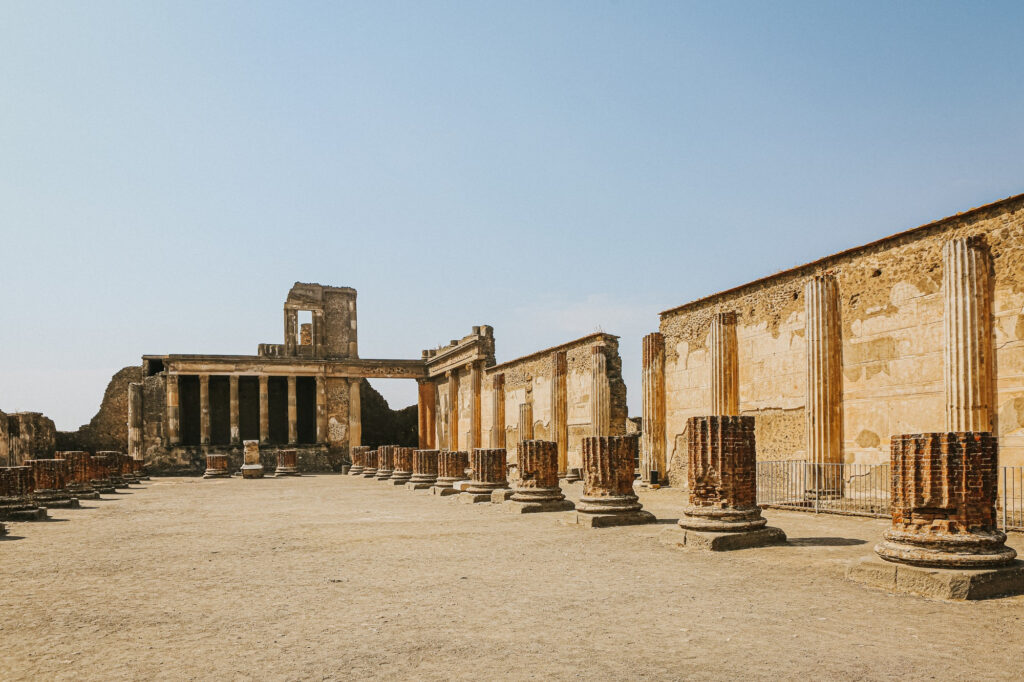
Visiting the ancient ruins of Carthage offers a captivating journey through history. Explore the
archaeological sites atop Byrsa Hill, including Roman villas and Carthaginian remains. The Carthage
National Museum houses artifacts, mosaics, and statues that provide insights into Carthaginian and Roman civilizations.
- Sidi Bou Said

The enchanting village of Sidi Bou Said, perched atop a cliff overlooking the Mediterranean Sea, is
renowned for its iconic blue and white architecture. Stroll through narrow cobblestone streets lined with
bougainvillea-draped homes, visit art galleries, and enjoy panoramic views from the Café des Nattes.
- Douz
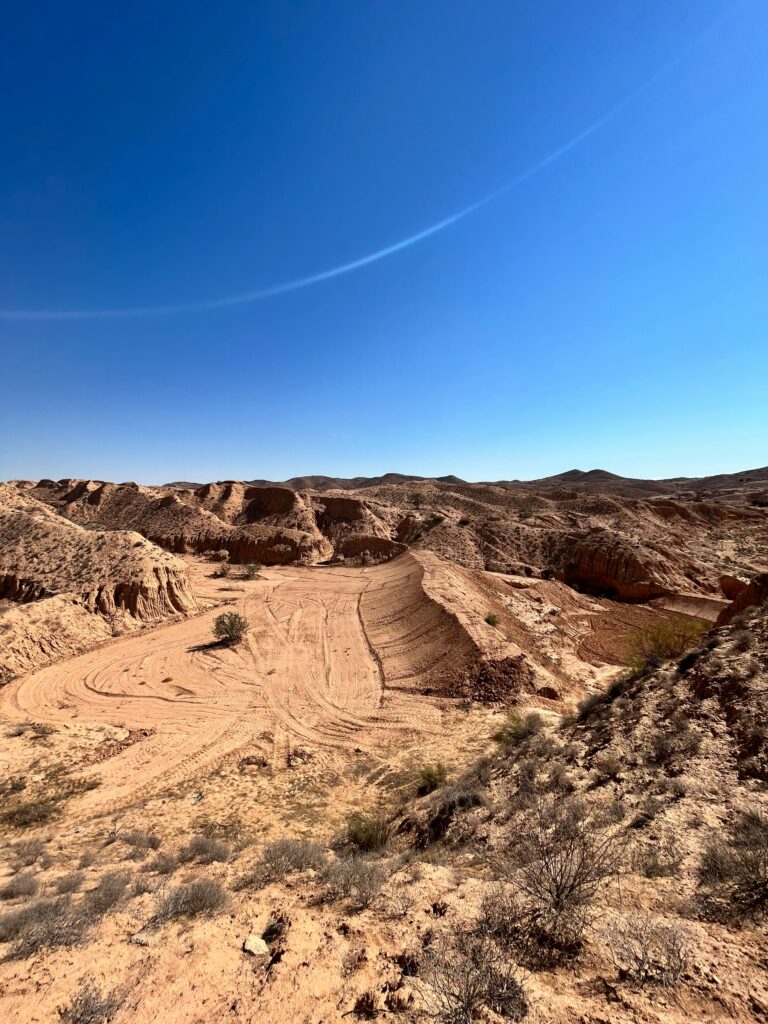
Located on the edge of the Sahara Desert, Douz is known as the “Gateway to the Sahara.” Experience camel rides over golden sand dunes, explore desert oases, and immerse yourself in Bedouin culture during the famous Douz Festival, a celebration of traditional music and dance.
- Tunis
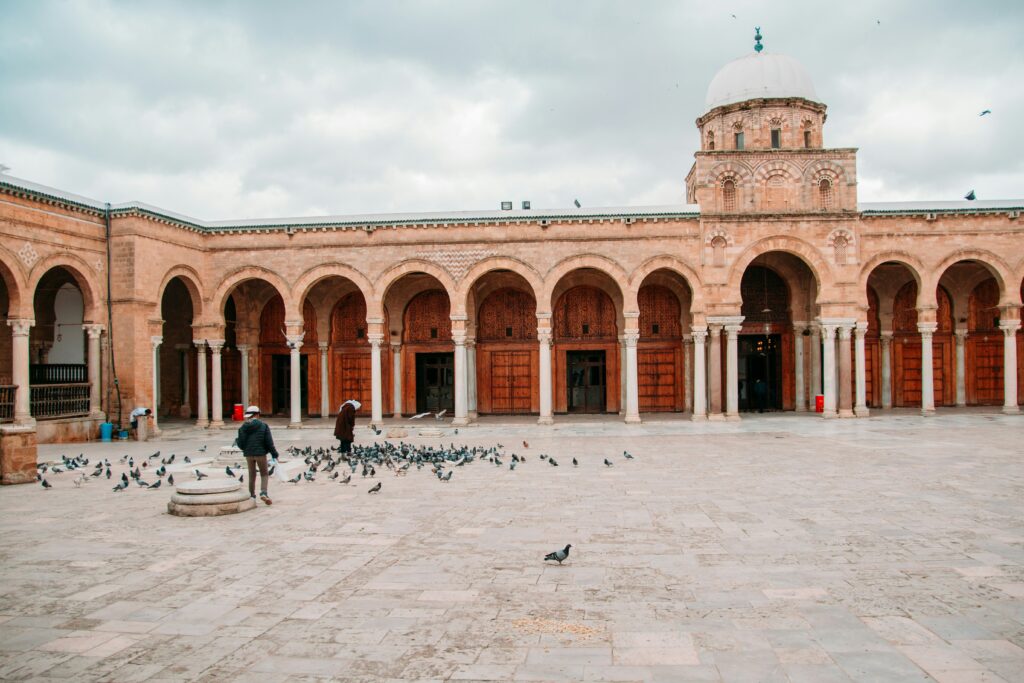
The capital city of Tunis blends history with modernity. Explore the bustling souks (markets) of the medina, a UNESCO World Heritage Site, where artisans craft leather goods, ceramics, and textiles. Visit the Zitouna Mosque, one of Tunisia’s oldest and most revered mosques, and discover ancient monuments like the Medina Tower.
Culture
- Islamic Traditions: Islam plays a central role in Tunisian culture, influencing daily customs, social interactions, and religious festivals. Tunisians observe Islamic practices such as Ramadan, Eid al-Fitr, and Eid al-Adha, and mosques serve as important community centers for worship and gatherings.
- Hospitality: Tunisians are renowned for their warm hospitality. Guests are welcomed with traditional greetings and offered sweet mint tea or coffee accompanied by pastries like baklava or makroudh. Tunisian hospitality reflects a culture of generosity and respect for guests.
Cuisine
Tunisian cuisine is a flavorful fusion of Mediterranean and Arab influences. Essential ingredients include
olive oil, tomatoes, couscous, and spices like cumin, coriander, and cinnamon. Popular dishes include
- Couscous: Steamed semolina served with vegetables, chickpeas, and meat or fish.
- Harissa: Spicy chili paste made from dried red peppers, garlic, and olive oil.
- Lamb Tagine: Slow-cooked lamb stew with vegetables and aromatic spices.
- Brik: Crispy pastry filled with egg, tuna, capers, and parsley.
- Seafood: Fresh fish and seafood dishes are popular along Tunisia’s coastal regions.


